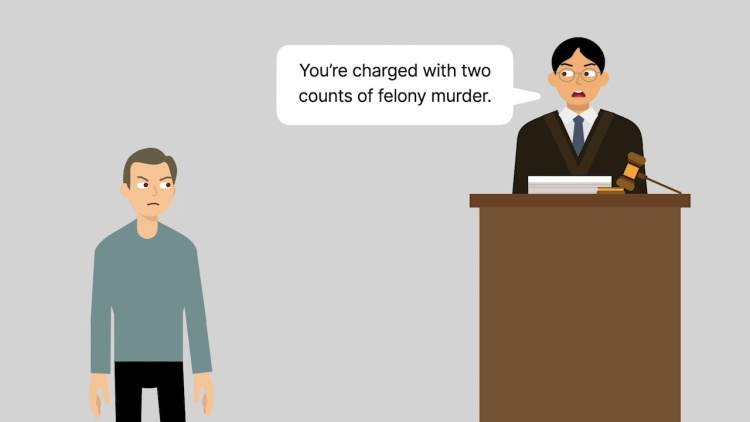State v. Hunter
Kansas Supreme Court
740 P.2d 559 (1987)
- Written by Lucy Elsbree, JD
Facts
At the time of this case, § 21-3401 of the Kansas Statutes precluded use of the defense of compulsion in cases where the defendant was charged with first degree murder or voluntary homicide, but did not specifically state whether the defense was permitted in felony murder cases. Hunter (defendant) hitched a ride in a truck in which Remeta and others were riding. Remeta, after brandishing guns and making threatening comments to Hunter about killing hitchhikers, shot and wounded a policeman who had pulled the truck over. The group then proceeded to a grain elevator, where Remeta, apparently assisted by Hunter, took two people as hostages. After the truck had proceeded some distance, Remeta shot and killed the hostages. Hunter was charged with two counts of felony murder for his participation in the kidnapping and killing of the hostages. At Hunter’s trial, witnesses for the state (plaintiff) testified that Hunter had been armed, but both Hunter and Remeta testified that only Remeta was armed and that Remeta had ordered Hunter to watch the hostages. There was testimony that Hunter had been out of Remeta’s sight at the back of the elevator building for a period of about five minutes, but Hunter testified that he did not think he had a chance to escape. The court refused Hunter’s request to instruct the jury on the defense of compulsion on the ground that § 21-3401 precluded the defense in cases of felony murder. Hunter was convicted of felony murder and appealed to the Supreme Court of Kansas.
Rule of Law
Issue
Holding and Reasoning ()
What to do next…
Here's why 907,000 law students have relied on our case briefs:
- Written by law professors and practitioners, not other law students. 47,100 briefs, keyed to 996 casebooks. Top-notch customer support.
- The right amount of information, includes the facts, issues, rule of law, holding and reasoning, and any concurrences and dissents.
- Access in your classes, works on your mobile and tablet. Massive library of related video lessons and high quality multiple-choice questions.
- Easy to use, uniform format for every case brief. Written in plain English, not in legalese. Our briefs summarize and simplify; they don’t just repeat the court’s language.





